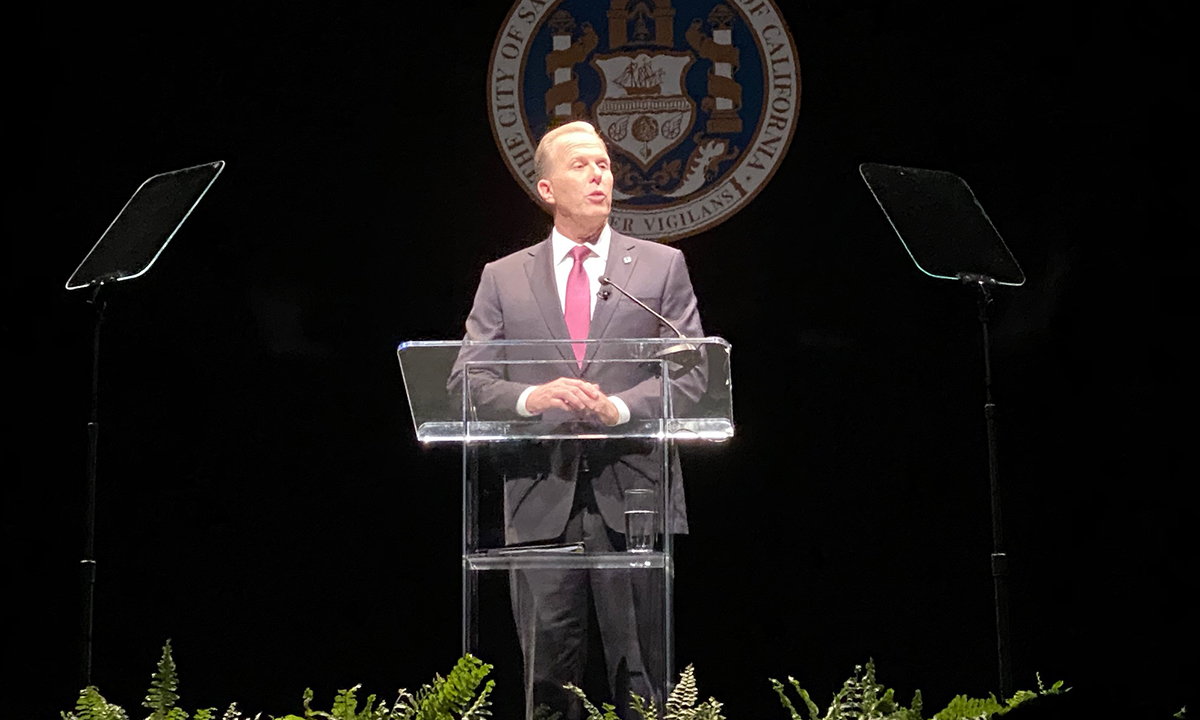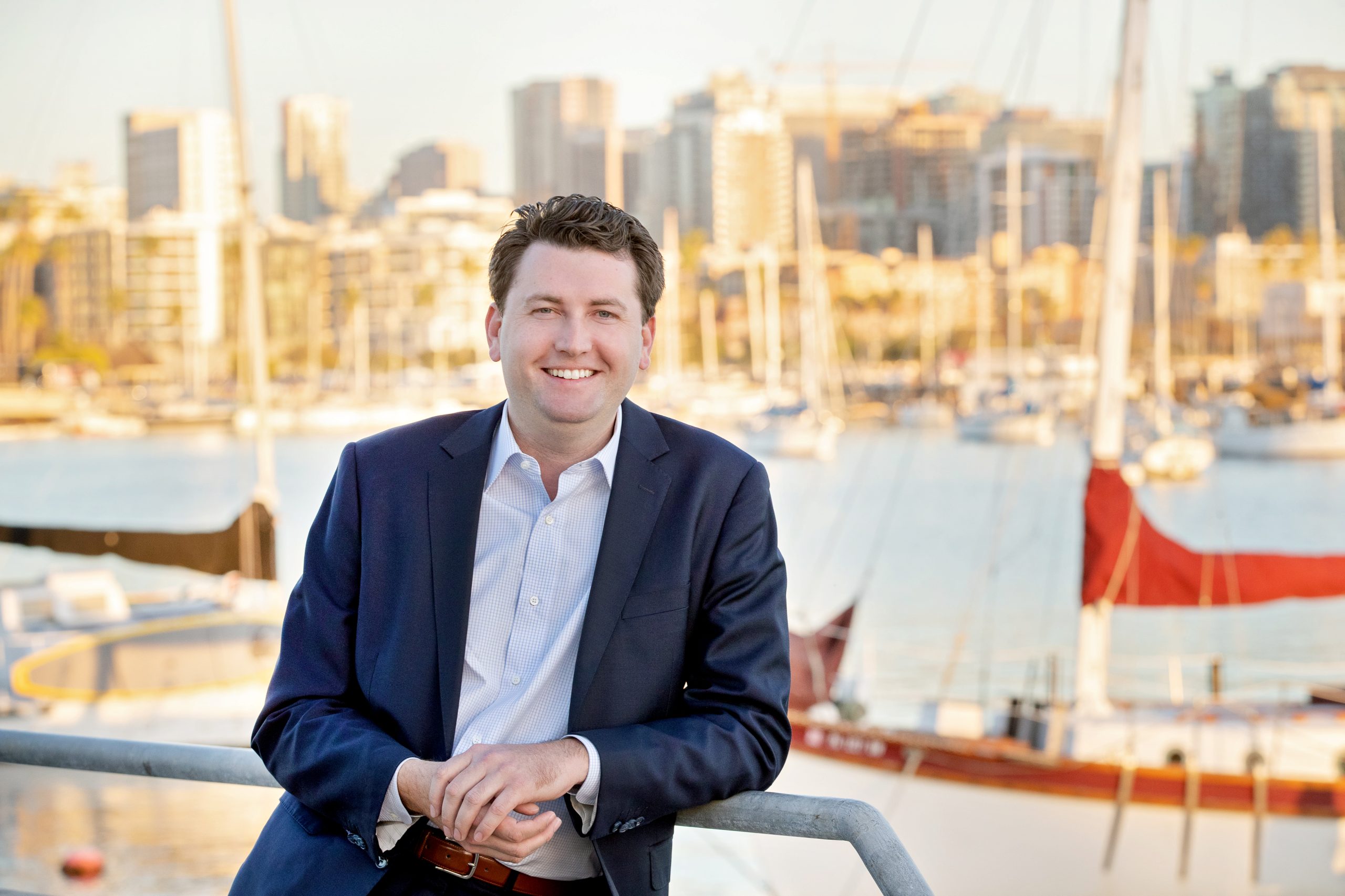On Wednesday, San Diego Mayor Kevin Faulconer gave his final State of the City address in front of several hundred San Diegans and dozens of elected officials. The speech was highly anticipated as it was unclear whether Faulconer would give a typical “lame duck” address as it’s his last year in office (he is officially termed out) and just reiterate the accomplishments under his leadership.
To the surprise of some and excitement of many, Mayor Faulconer went a different route. Rather than boasting about how great everything is in San Diego with sunshine and rainbows abound, he emphasized the need to do much more to get San Diego where it can be. He dismissed the need to be “politically correct,” instead voicing his opinions openly and honestly about the realities in San Diego.
For Faulconer, the reality is that we’ve finally been able to make progress on homelessness, but still have much more work to do. Furthermore, he emphasized the need to expand the San Diego Convention Center through Measure C and streamline housing construction to further reduce homelessness and housing costs.
However, one clear point of contention arose in Faulconer’s speech, which was expected given that much of it centered around homelessness: the most salient issue in San Diego and perhaps all of California. He called out the “experts” who’ve suggested that homelessness is purely a housing issue, with their implication being that if we could simply figure out how to house everyone then the problem would disappear. Faulconer vociferously disagreed with this hypothesis, explaining that mental health and drug abuse are huge factors that must also be addressed to make real, sustainable progress on homelessness.
Academic theories on solving homelessness are inadequate for the scope and scale of California’s crisis. Thousands aren’t homeless just because they lost a home, they are also homeless because they are losing their fight with mental illness or addiction or both.
— San Diego Mayor's Office (@SDMayorsOffice) January 16, 2020
Mayor Faulconer is correct, of course. Even the increasingly left-wing San Diego Union-Tribune acknowledges this fact in a recent editorial, which said “the mayor is hardly rejecting adding shelter. Instead, he is saying that without more effective responses to the addictions and mental illness that fuel homelessness, progress on the issue can’t last. That shouldn’t be controversial. That should be the new conventional wisdom.”
While other issues like infrastructure and crime came up in the speech and remain hot button issues in San Diego, it was clear that Faulconer’s bold initiatives on reducing homelessness through housing construction, homeless shelters, and mental health facilities were the focus of the evening—and likely the next year.
It may be a big election year and Faulconer’s last as mayor, but he intends to spend it working tirelessly on the issues that are affecting San Diegans most. Reasonable people can disagree on Mayor Faulconer’s platform and policy success as mayor, but his commitment to the betterment of San Diego is unquestionable.




